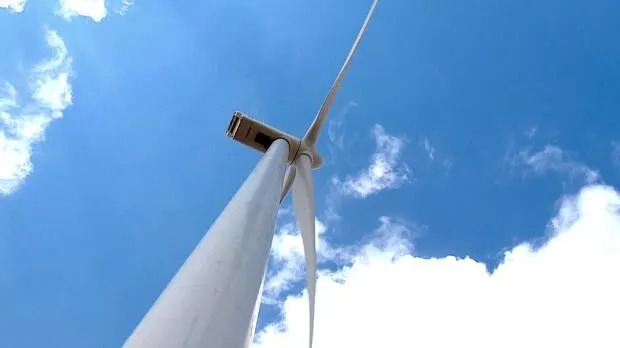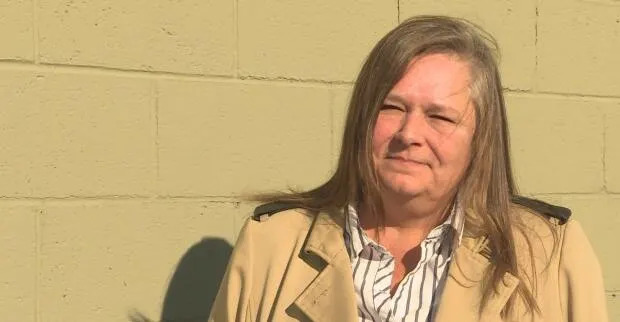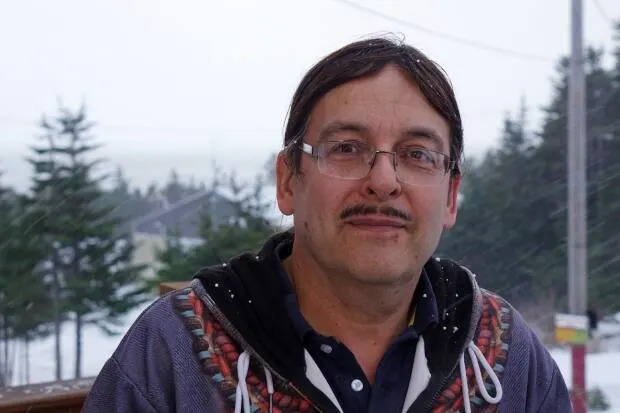Newfoundland and Labrador
Mi'kmaw chiefs look for mediator help to solve wind energy conflictSun, February 19, 2023
The proposed Project Nujio'qonik on the Port au Port Peninsula has caused conflicts with some Indigenous nations, five Mi'kmaw chiefs in southwestern Newfoundland say.

Kyle Bakx/CBC
Five Mi'kmaw chiefs in southwestern Newfoundland are seeking Indigenous mediation to try and resolve conflicts that have arisen from the wind energy proposal for the Port au Port Peninsula.
The five bands in southwestern Newfoundland, acting together as the Newfoundland Association of Rural Mi'kmaq Nations, or NARMN, also hope mediation might rebuild relationships within the communities that they say were damaged over the wind turbine project.
Peggy White is chief of the Three Rivers Mi'kmaq Band located in the Bay Saint George South area, about 70 kilometres south of Stephenville.
White says she hopes that everyone involved will benefit from mediation.
"We're hoping that bringing in a third party can help the company, ourselves, the people that live within our territory — everyone, to come together and find resolution," said White.
"There has to be a way for this to be able to work. We need significant economic infrastructure that we haven't had for the last 70 years."
In a joint statement released Thursday, chiefs of the Three Rivers Mi'kmaq Band, the Benoit First Nation, the Flat Bay Indian Band, the St. George's Indian Band and the Burgeo First Nation express their concern over the divide within their communities that has arisen over Project Nujio'qonik, proposed by company World Energy GH2.
The statement also says that the five chiefs were contacted by World Energy GH2 in spring 2022, and that, given potential positive impacts for their communities, the chiefs have been supportive of the project ever since.
Opinions on the project within the nations vary, said White, with some wanting infrastructure in the area to grow opportunities for younger generations. The average age in the area, she said, is about 60.
"We need to change that. And if we don't, people understand that our communities will cease to exist. And when an Indigenous community ceases to exist, that's extinction of a culture on the land that they've been on for generation after generation," said White.
"Some people understand what we're facing, and some people don't. Some people just, they have an idea of what the project is and they're having difficulty understanding what that's going to look like going forward."

Colleen Connors/CBC
Mediation, White said, can help find some balance between the two sides, and combat misinformation by helping people understand all aspects of the project.
"A real process that takes us from people feeling that they don't have information, that we're being taken advantage of somehow," said White.
"There's a third party that can say, 'Well, no, no, we've met every step of the process'. So, there's transparency. So, just everybody can come together and understand that we haven't missed anything."
Jasen Benwah is chief of the Benoit First Nation located in the southwest of the Port au Port Peninsula.
He agrees that mediation is necessary.
"We need to get back into the communities and feel that connection and feel that information-sharing," said Benwah. "I think that's crucial to our own, I guess, truth and reconciliation when it comes to where we stand as people."
Benwah, who has been criticized for his support of the project, said looking back, a mediator should have been brought in from the very beginning. Yet he doesn't change his stance on the matter.

Patrick Butler/Radio-Canada
"It's important to step forward for our area as long as we strike the balance that we need and that we do it right for all the things for our next seven generations," he said.
Both Benwah and White believe impartial Indigenous experts from outside are needed as mediators on this issue. They hope the mediation process will start in early March.
"We need to make sure that ... the people in our territories are secure that we have met every requirement possible," said White. "If hitting all of those processes makes people feel safer than that's what we're obligated to do."
No comments:
Post a Comment